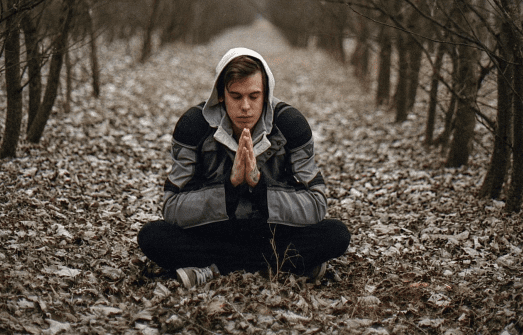I want to start by saying that this list of spiritual traps accompanying bipolar disorder is no scientific article. Rather, it is a list of my own experiences and those of my clients searching for ways to integrate spiritual wisdom gleaned during times of madness while also honoring the painful reality of bipolar symptoms. Just as creativity has been openly linked to bipolar disorder, there is a spiritual component to the illness that gets much less attention due to various degrees of stigma and taboo.
Because of so much obscurity and ambiguity around spiritual awakening and symptoms of mania, many feel lost trying to integrate their experiences. I believe the confusion has a lot to do with spiritual revelation being dismissed during co-occurring mania. This list of spiritual traps common with bipolar disorder attempts to address this false dichotomy. An antidote for each trap is included — a way out that might ease the psychic tension and allow for honest and open evaluation of one’s condition.
1. Grandiosity. When one first awakens to spiritual truths, there is an automatic invitation to feel special. How could we not feel this way? We suddenly realize that there is more to life than what we had previously thought. Because newly gained spiritual insight appears foreign to others, we think we’ve been chosen, are more valuable or alone carry the burden of truth.
Antidote: Humility. Perhaps you have stumbled upon the perennial wisdom of unity, oneness and transcendence, but surely you are not the only one; not throughout history and not now, either. Many people are privy to the same insight through spiritual practice and contemplation. You are not alone. Know these insights are inherent to the human condition, if only yet to be realized.
2. Isolation. Grandiosity might be considered a type of psychological isolation, where one feels differentiated from others to the point of feeling singularly magnificent. But physical and emotional isolation may ensue as well as one gravitates to spiritual ideas. Spiritual insight plants a seed that can grow into obsessive behavior, shutting out loved ones and former connections in the pursuit of enlightenment or other types of spiritual attainment.
Antidote: Community. Spiritual pursuit may be a personal endeavor, but community is a huge part of all wisdom traditions. Whether it’s the tribe, the Sangha or the congregation, we need others to discuss, support and validate our experiences. Community can help normalize one’s insight so it doesn’t feel so overwhelming.
3. Urgency. The idea that you or anyone else needs to awaken to spiritual truth on any particular timeframe is aggressive and can breed paranoia, even violence. The mind becomes speedy, racing toward some final, seemingly inevitable destination. Urgency can stem from a sincere desire to share wisdom but can also result from fear of missing out or losing touch with one’s current state. It feels like the window of opportunity might shut at any moment.
Antidote: Trust. Billions of years. Billions! That’s how long it took for us to get here. And that’s just present knowledge. Who’s to know how many eons have passed prior to the universe as we know it or where the seed of life originated. Must everyone now awaken on our time? Be patient. Understand the limits of one person. Trust the process that brought you into being, and trust the path laid before us all as both individuals and as one human collective.
4. Perfectionism. Rooted in the striving for a perfect spiritual life is the poison of dichotomous thinking: the all-or-nothing, black-and-white approach to understanding. People are either good or evil, ideas are either wrong or right and we ourselves are either enlightened or crazy. This creates tremendous rigidity and pressure, making it difficult to relax and find serenity.
Antidote: Compassion. Be gentle with yourself and those around you. Listen closely and try to understand others and what they’re feeling and needing. Forgive misunderstanding or miscommunication. We are all doing the best we can with the tools we have. There is goodness in all of us, no matter how obscured by pain and confusion. Love is always the answer.
I hope this article might validate the spiritual insights of so many while bringing more awareness to this crucial area of bipolar disorder. This list is merely a few notable insights from my own experience, validated in anecdotal evidence by those I’ve worked with and met throughout my time as a life coach for people in recovery. Spirituality and psychiatry are not mutually exclusive, but can be integrated into a comprehensive treatment that validates one’s experiences while honoring the need to manage symptoms.
Chris Cole is the author of The Body of Chris: A Memoir of Obsession, Addiction, and Madness, and he’s a life coach for people in recovery.
The content of the International Bipolar Foundation blogs is for informational purposes only. The content is not intended to be a substitute for professional medical advice, diagnosis, or treatment. Always seek the advice of your physician and never disregard professional medical advice because of something you have read in any IBPF content.


